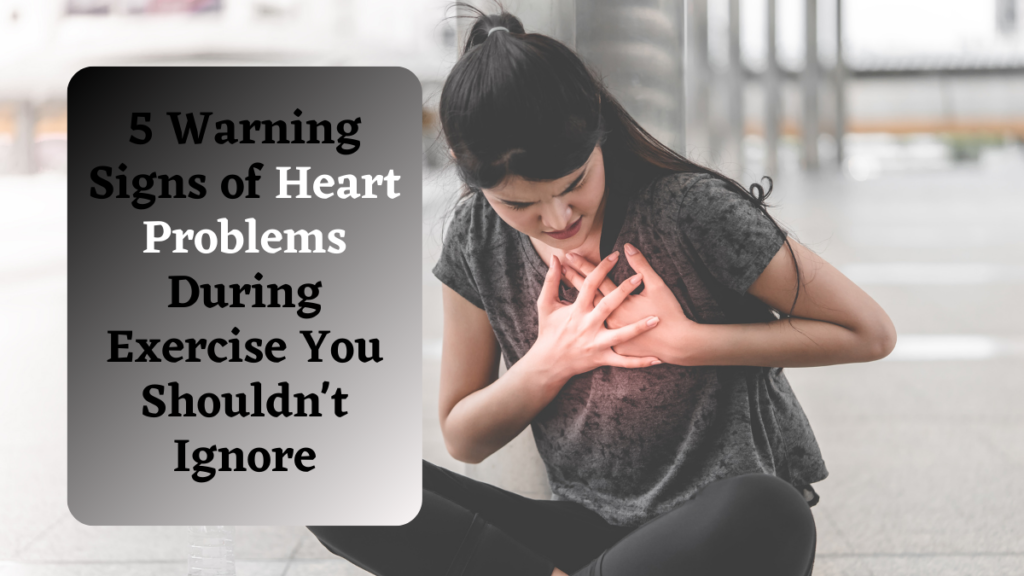5 Warning Signs of Heart Problems During Exercise You Shouldn’t Ignore
Introduction
Engaging in physical activity is crucial for maintaining a healthy heart and overall well-being. However, it’s essential to recognize when your body is signaling potential heart problems during exercise. While exercise typically benefits cardiovascular health, certain warning signs should never be ignored. Ignoring these signs could lead to severe consequences, including heart attacks or other cardiac events, 5 Warning Signs of Heart Problems During Exercise You Shouldn’t Ignore.

Here are five warning signs to watch out for during exercise:
Chest Discomfort or Pain:
Chest discomfort or pain during exercise is one of the most recognizable warning signs of heart issues. This discomfort may manifest as a squeezing, pressure, tightness, or fullness sensation in the chest. It’s important not to dismiss chest pain, even if it seems mild or intermittent. If you experience chest discomfort that doesn’t subside with rest, seek medical attention immediately.
Shortness of Breath:
While shortness of breath can be a normal response to intense physical activity, excessive or sudden shortness of breath during exercise could indicate underlying heart problems. If you find yourself struggling to catch your breath even with moderate exertion, it’s crucial to pay attention. Shortness of breath accompanied by other symptoms like chest pain or lightheadedness warrants prompt medical evaluation.
Dizziness or Lightheadedness:
Feeling dizzy or lightheaded during exercise may signal inadequate blood flow to the brain, possibly due to a cardiovascular issue. This symptom could result from abnormal heart rhythms, reduced blood volume, or other cardiac conditions. If you experience dizziness or lightheadedness during physical activity, stop exercising immediately and rest. If the symptoms persist, seek medical attention promptly.
Irregular Heartbeat (Arrhythmia):
An irregular heartbeat, or arrhythmia, can occur during exercise and may present as palpitations, skipped beats, or a racing heart. While occasional irregular heartbeats may not be cause for alarm, persistent or severe arrhythmias warrant medical evaluation. Certain arrhythmias can increase the risk of more serious cardiovascular events, making it crucial to address any irregular heartbeat during exercise promptly.
Excessive Fatigue or Weakness:
Feeling excessively fatigued or weak during exercise, especially if it’s disproportionate to the level of exertion, could indicate an underlying heart problem. While it’s normal to feel tired after a challenging workout, persistent or extreme fatigue during exercise may be a red flag. Pay attention to your body’s signals and take breaks as needed. If fatigue or weakness persists despite adequate rest, consult a healthcare professional.
Conclusion
Recognizing warning signs of heart problems during exercise is essential for maintaining cardiovascular health and preventing potentially life-threatening complications. If you experience any of the aforementioned symptoms during physical activity, it’s crucial not to ignore them. Listen to your body, prioritize safety, and seek medical attention promptly if you suspect any cardiac issues. Remember, early detection and intervention are key to managing heart problems and maintaining a healthy, active lifestyle.











